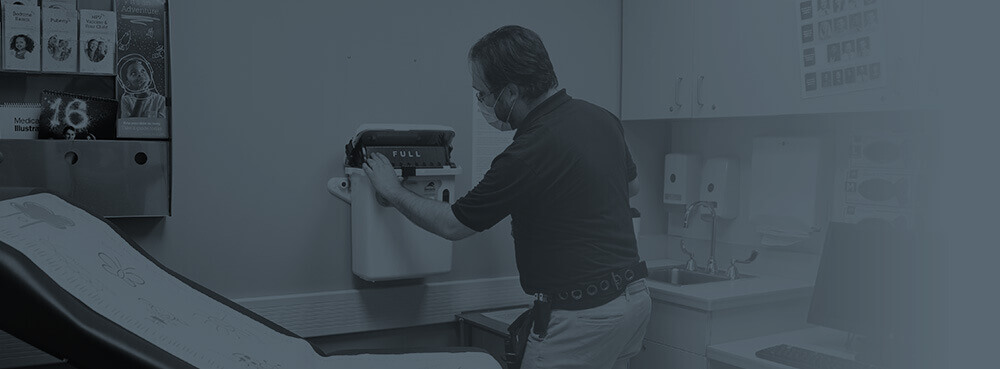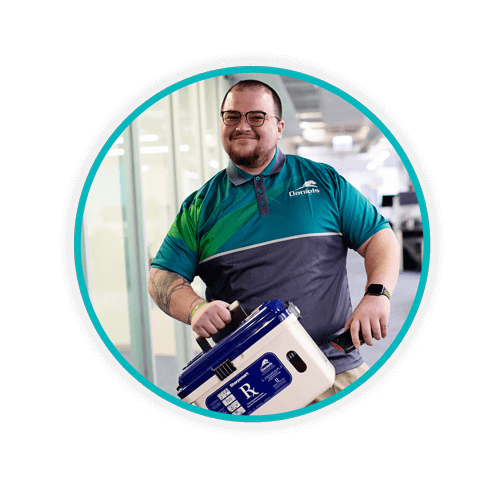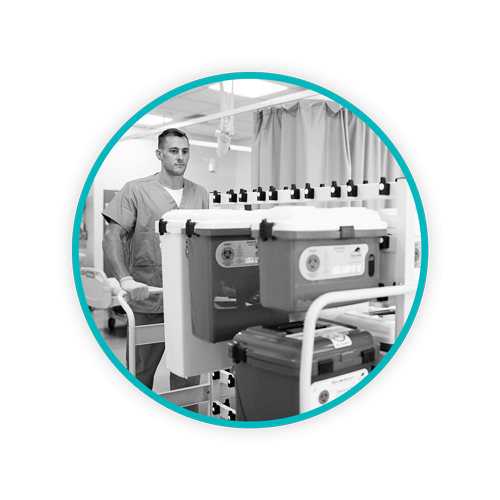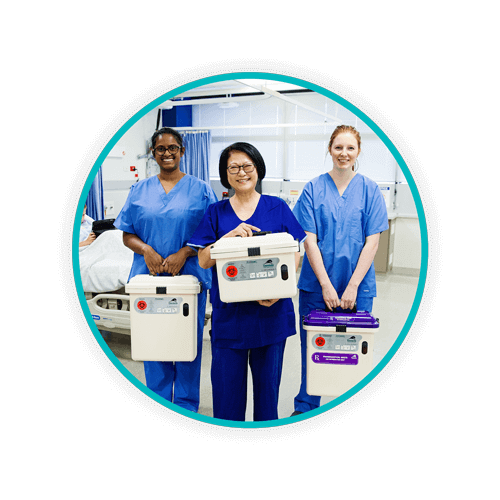The Impact of Field Service Reps in Hospitals


At Daniels Health we realize our greatest resource is our people. So who better to tell you about the value and function of our Field Service Representative (FSR) role than Griffin Dubrule, Field Service Manager to over 15 direct reports at 25 healthcare facilities spanning over 10,000 square miles.
He may be embarrassed we’re hyping him up like this – but as someone who came into the role in October 2019 and has completely elevated and optimized it, we’re pretty biased about what an asset to healthcare he is.
If you’re considering joining Daniels Health as Field Service Manager and want to learn more about the role or you’re a clinician interested in the positive impact our FSR’s have on our customers – keep reading! Below are some of the topics we will cover if you want to explore at your own pace:
- What initially drew you to Daniels Health?
- What does a day in the life of an FSR look like?
- How does this role positively impact hospitals?
- What skills can someone learn in this role?
What initially drew you to Daniels? From what I hear, in your past life you were a sailing instructor that went on to specialize in custom integrations like smart homes – what led you to the healthcare industry?
I first heard about the opportunity at Daniels through a connection. I was seeking a role that gave more connection to the world and offered more dimension.
Things really clicked for me when I met two senior Daniels team members at the location of one of their customers, AdventHealth in Tampa, Florida. It was there I saw Daniels’ product for the first time – the suite of reusable healthcare waste containment systems in action. I could see the thought and vision behind the Daniels’ solution to medical waste management. I can only describe it as a superior product in every way to the traditional methods of waste handling – think model airplane vs. paper airplane.
Overall, I was inspired by the brain behind the design, Dan Daniels CEO, and his passion to implement these innovative healthcare waste containment systems in as many facilities as possible to improve the safety of both clinicians and staff. I believe the American market and clinicians deserve modern solutions.
Totally agree with you there – sustainability and safety are the way of the future and it’s our job to help healthcare get there. Now, can you elaborate more on what a Field Service Representative (FSR) does? What does the day to day look like?
Sure! In the broadest sense: we go into the hospital and change out the Daniels medical waste containers. Seems simple, right? There are actually so many more elements of interfacing with the hospital.
The main priority of an FSR is to ensure the clinical environment is safe – owning the changeover of sharps and other clinical waste containers to ensure there is no breakage from clinical staff norm. The job of an FSR is to go through the whole hospital and check all of those containers, evaluate their current waste fill level and ascertain whether they’re going to fill up before the next time you are scheduled to visit that room.
As an FSR, you also have the opportunity to vastly improve a hospital’s healthcare waste management system – you look for opportunities to make things better.
While conducting container checks, FSRs are equipped with a Daniels TRACE device. This device allows us to electronically scan containers room by room and register whether the container has been inspected, removed, or changed. TRACE accumulates this data and gives hospitals full visibility over what areas of the facility are generating the most waste and where they can look to optimize their waste segregation program – potentially increasing labor efficiencies and reducing costs.
Let’s continue with that thought for a moment… How do FSR’s positively impact hospitals?
The thing to keep in mind is that the metric for success is how well the FSR can maintain the facility’s sharps level. They take a holistic approach to identify opportunities for rightsizing within the facility. Can the sharps waste management be improved if a container is installed in a specific location? Is it more efficient to have this location or department serviced more often?
FSR’s are the eyes and hands in a healthcare facility that help drive an effective clinical waste management program. Understanding the frequency of container exchanges, certain locations where containers are filling more often or segregation behaviors that are impacting the volume of waste being accumulated, together with data captured through our TRACE program – we capture critical data that helps both Daniels and the healthcare facilities they partner with to optimize their waste management program.
We also partner closely with a hospital’s EVS staff – occasionally we even hire FSRs from a hospital’s existing EVS staff. This allows collaboration and transparency between Daniels Health and the hospital we partner with. As the Field Service Manager, I make contact with FSRs every week to ensure we are all on the same page and our goals are aligned for service.
Thank you for that insight, Griffin! It’s nice to hear what a difference the team makes. What skills can an FSR expect to learn as they grow in this role?
You learn how to manage your own schedule, for one. There is a little flexibility in when you choose to service a hospital. Definitely communication skills because when a room is occupied by a patient, you interact with them to make sure you can come in to service the container.
An FSR will learn how a hospital works from a fundamental level – I think of it as learning “the common sense of healthcare.” You will exemplify compliance and safety while being cordial with patients and staff. Since you are in a customer-facing role, customer-service skills will always be in action; it’s up to you to manage personal relationships with the customer and always strive towards understanding their unique role and circumstance.
An FSR role is a fantastic opportunity for an individual who wants to make a difference in the clinical space. Your role has a direct impact on the safety and labor of clinicians.
If a field service position sounds like something you’d be interested in, read more about the role here to see if it sounds like the fit for you.
Let's Talk!
Your time is valuable, and we don’t want to play hard to get. You can either phone us directly on the details listed on our contact page, or feel free to fill out this short form and one of our team members will get back to you as quickly as possible.
